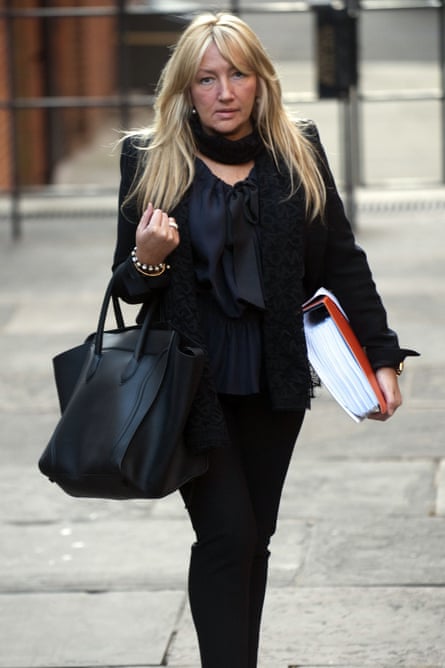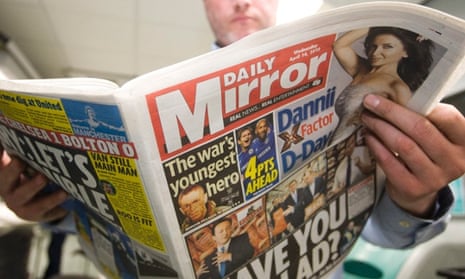After years of rebuttals, numerous assurances under oath to the Leveson inquiry, and the dismissal of legal claims as “wholly unsubstantiated”, it took a single devastating morning at the high court in London to leave Trinity Mirror’s phone-hacking denials in ruins.
The court was told that senior journalists at the Daily Mirror, Sunday Mirror and Sunday People intercepted celebrities’ voicemails on an industrial scale, making the News of the World look like a “small cottage industry”.
The allegation was all the more striking because – for the first time – there was an absence of any denial from the publisher, Mirror Group Newspapers (MGN); in effect it was not contesting the testimony offered up in court.
The tabloid publisher admitted during the trial that phone hacking was the source of more than 100 articles about eight claimants, including the actor Sadie Frost and ex-footballer Paul Gascoigne.
It was a far cry from the combative stance of Sly Bailey, the then-Trinity Mirror chief executive, who told the Leveson inquiry in January 2012 that there was “no evidence and we saw no reason to investigate” allegations of phone hacking at the titles. “It is not the way to run a healthy company; to conduct investigations when there is no evidence to say our journalists have hacked phones,” she said.

For years, the publisher’s spokespeople trotted out the line: “Trinity Mirror’s position is clear: our journalists work within the criminal law and the PCC code of conduct.”
Fast forward to September 2014 and Trinity Mirror makes its first public admission that some of its journalists hacked phones. It was an admission designed, in part, to avoid a costly civil trial and the damaging headlines that go with it. The company set up a compensation fund for phone-hacking victims and Trinity Mirror executives briefed, rather hopefully, that there was now no need for the high court trial to go ahead.
But behind the scenes, lawyers for the victims were determined to have their day in court. Only then, they said, would the full extent of phone hacking at Trinity Mirror be revealed. One senior legal source said the two sides were also poles apart when trying to agree compensation for the victims. “The only way that you can get this settled is if you pay them enough. They were trying to keep it down for pound or penny and we were a long way apart,” the source said.
As the trial neared, the company moved into full damage limitation mode, sending letters of apology signed by the Trinity Mirror chairman, David Grigson, and the chief executive, Simon Fox, to each of the eight claimants. Days later the company’s three titles printed a page-two apology admitting that its intrusion into people’s private lives had broken the law.
Meanwhile, its compensation fund for phone-hacking victims was increased from £8m to £12m – a recognition that publicity surrounding the trial would inevitably prompt further claimants to come forward. So far 41 celebrities, including the actors Elizabeth Hurley and Hugh Grant, have lodged claims and dozens more are waiting in the wings, meaning the eventual cost is likely to be far in excess of £12m.
But by far the greatest threat to Trinity Mirror is the looming prospect of a possible corporate prosecution. Those cases are notoriously difficult to pull off but the newspaper group has attempted to head off any potential prosecution by cooperating with Scotland Yard detectives and handing over scores of internal emails, telephone call data, invoices, expenses receipts and other evidence. It remains to be seen whether this strategy will pay off, with any decision on criminal charges expected by summer.
For now, the trial appears hardly to have made a ripple on Trinity Mirror’s share price. It stood at 182p at Wednesday’s close, representing a fall of 9.23% since the first day of the trial, when shareholders were buoyed by an announcement that the publisher was to pay its first dividend in seven years after a 1% increase in pre-tax profits to £102.3m.
Revelations that some of the titles’ most senior journalists were hacking phones over a decade, from 1999 to 2010, will likely not last long in the memory of readers fatigued by the phone-hacking scandal and its fallout. But the reputational damage from the excoriating testimony of Gascoigne, Frost and a string of soap opera stars – plus the looming threat of the company itself being in the dock – will be much harder to shake off.
